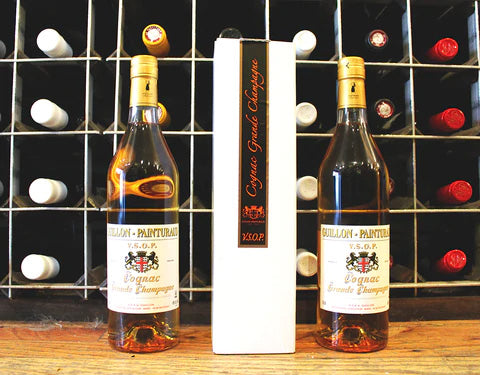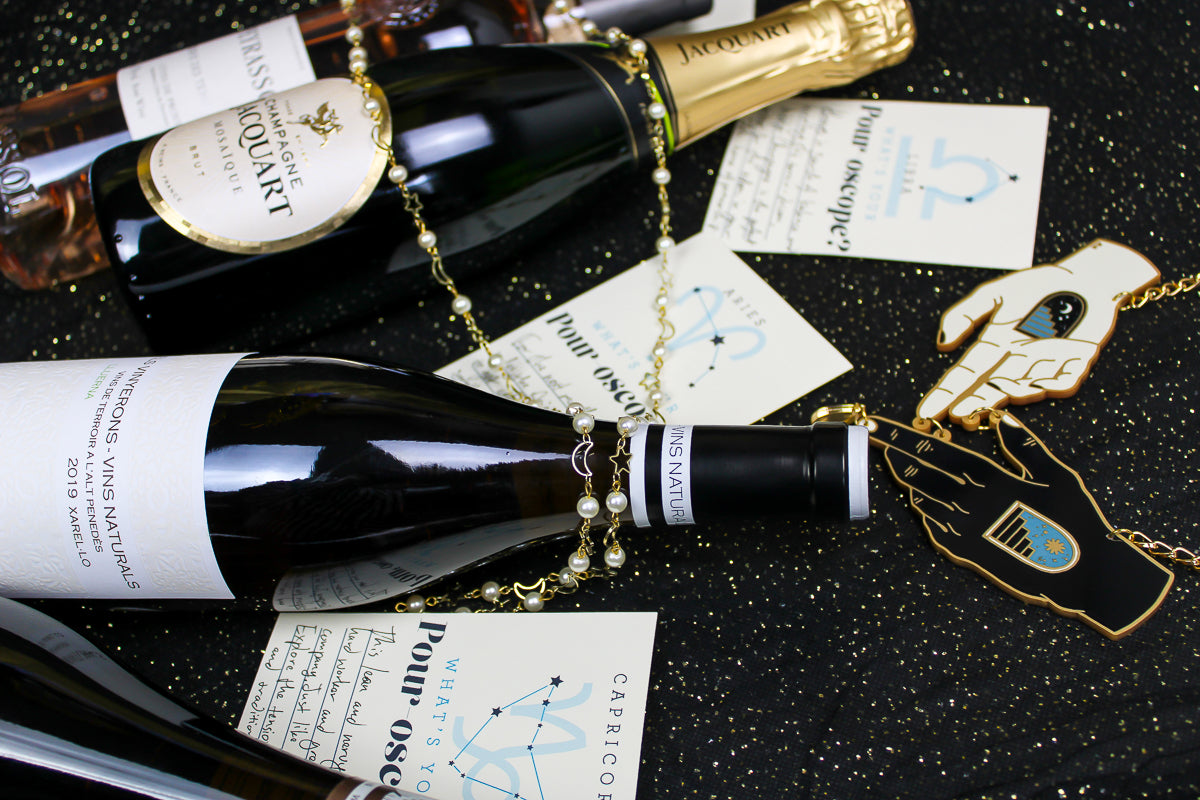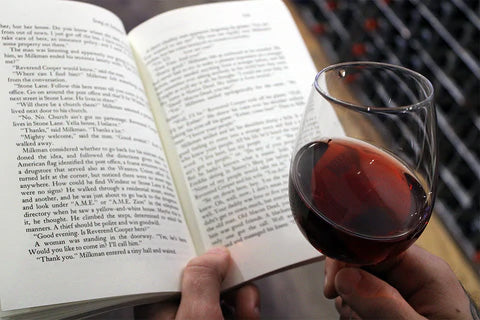
CRACKING THE COGNAC CODE: AN INTRO TO YOUR NEW FAVORITE SPIRIT
Classy, elegant, luxurious and a little mysterious, cognac is incredibly versatile, despite its reputation as a “serious drink” best enjoyed in smoking jackets around roaring hearths. Cognac is an affordable, year-round spirit that works as well on its own as it does in cocktails. But don’t take our word for it. Join us at Wine & Spirits on Saturday, June 12 for a tasting of our Guillon-Painturaud V.S.O.P. Cognac! In the meantime, here are some fast facts to bring you up to speed on this cocktail classic.
DID YOU KNOW?
FIVE FACTS ABOUT COGNAC
-
Cognac is a type of brandy, just like grappa, Calvados, applejack and even Pisco!). All Cognac is produced in a specific region of about 200,000 acres surrounding the town of Cognac, France, just northeast of Bordeaux. All Cognac is brandy, but not all brandy is Cognac.
-
Cognac is made from grapes. According to French and European law, Cognac can only be made from Colombard, Folle Blanche, Montils, Sémillon, Ugni Blanc Folignan (10% maximum), and ― provided they were planted before September 18, 2005 and harvested through 2020 ― Jurançon Blanc, Meslier-St-François, and Sélect.
-
Cognac tells you exactly how old it is. How? Take a look at that alphabet soup on every bottle: “VS” means “Very Special,” aged for a minimum of two years, “VSOP” means “Very Superior Old Pale” and is aged for at least four years. “XO” and “Extra Old” mean the liquid has been aged for more than six years. Cognac labeled “Napoléon” is technically aged as long as XO, though it is marketed as being somewhere between a “VSOP” and an “XO”.
-
Cognac and Armagnac are cousins! While they may differ in texture and distillation processes, Armagnac and Cognac are both brandies, and both made from grapes. In fact, Armagnac has a similar age class brandy with similar classifications as Cognac. Armagnac is often fuller bodied and more rustic in style than Cognac.
- Cognac is great in cocktails. Sipping spirits neat is not for everyone, do don’t feel weird for preferring Cognac in a cocktail. Sidecars and French 75s are great places to start cocktail adventures, but you can also experiment by replacing whiskey or rum with Cognac, especially younger styles.
READY TO EXPERIMENT?
Here are some great bottles to try:
- Guillon-Painturaud Cognac V.S.O.P: Made by one of the few female makers in the region, this award-winning Cognac made from 100% sustainably farmed Ugni Blanc with no added yeasts, colorants, or flavors, and aged for an average of 15 years in French oak (4 years longer than required), which you can taste with every smooth, exquisite sip.
- Maison Surrenne Cognac 750ml: This is an outstanding, award-winning Cognac from one of area’s largest, remaining family-owned firm, with eight cellars and four distilleries. Fruity and soft, with notes of plum, candied fruit, citrus, cocoa dust and baking spices, this classic Cognac finishes long and smooth.
- Marie Duffau Bas Armagnac Napoléon: Marie Duffau uses only the best quality fruit, harvested from the best soils in Bas Armagnac. She uses Ugni Blanc, Bacco, Colombard and Folle Blanche grapes for her blends, all cultivated without the use of pesticides or fertilizers. This six year old expression is full of warm flavours of caramel, plum and baking spice.
- Caffo Vecchia Grappa: As a distant, Italian relative of Cognac, grappa has its own list of rules and regulations, but it also made from grapes. he Caffo distillery dates back to 1865, when Joseph Gruner began to distill the marc from the wine he produced on the slopes of Mt. Etna in Sicily. Today they produce grappas, fruit brandies and liqueurs of high-quality using only traditional techniques. This grappa is distilled twice from selected red and white varietals, then aged in oak for up to two years. This spirit offers notes of golden raisins, vanilla, baking spice and fig.



